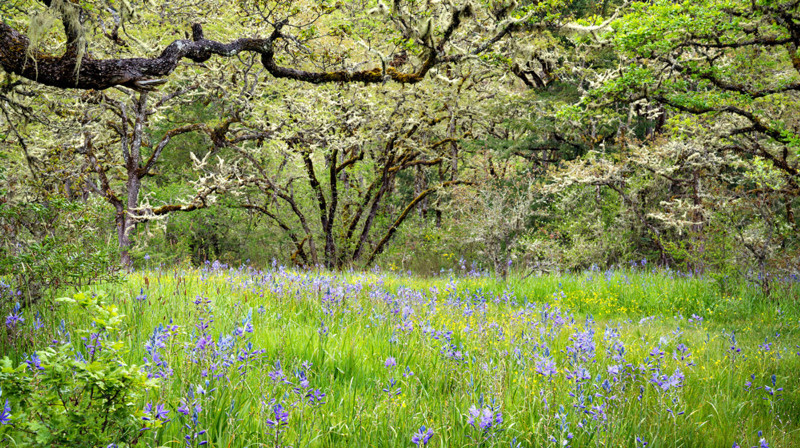Gardeners often reach out to us, asking "what grows well together?" Or, they might ask, "What plants do well in this or that situation?" While each garden is unique, there are certain principles gardeners can use to answer these questions.
One way is to look to natural ecosystems. We can find the ecology that a particular native plant calls home. We can see what conditions they thrive in, and what other plants grow with them. We can look at sunlight, water, shade, temperature and more. (We also offer stats for each plant at the bottom of the description on their page.)
Another way is to notice what each plant does in their ecosystem. Do they attract pollinators? Do they improve the soil? Do they create shade? Do they grow in complimentary soil layers? From this, we can create combinations of plants that use the space efficiently and grow well together (even if they might not be found in nature together). Sometimes, they even directly support one another, like in the case of nitrogen-fixing plants!
Both of these approaches create what we might call "plant guilds", or polycultures. We could also call them "Ecological Groups" or "Garden Ecosystems", as we now do on our site. To help our customers, we looked at our 75+ native edible species and made groupings that give gardeners a head start in their garden creation or evolution.
Some, like the Oak Savannah Guild, give gardeners a start at restoring a critically-endangered ecosystem in their backyards. Others, like the Fruit Tree Guild select a synergistic grouping of plants that grow well around a single native tree. Still others simply gather together sub-categories of plants that have similar characteristics, like the Evergreen Guild.
Each guild comes with 10+ plants that will fill approximately a 10- 20 ft diameter space in your garden. When you buy an entire guild, you get 15% off!
As mentioned above, Fall is the perfect time for planting in the Pacific NW. Planting a guild this coming Fall season could transform your garden for next year!
Happy Planting!
-Kaylee
